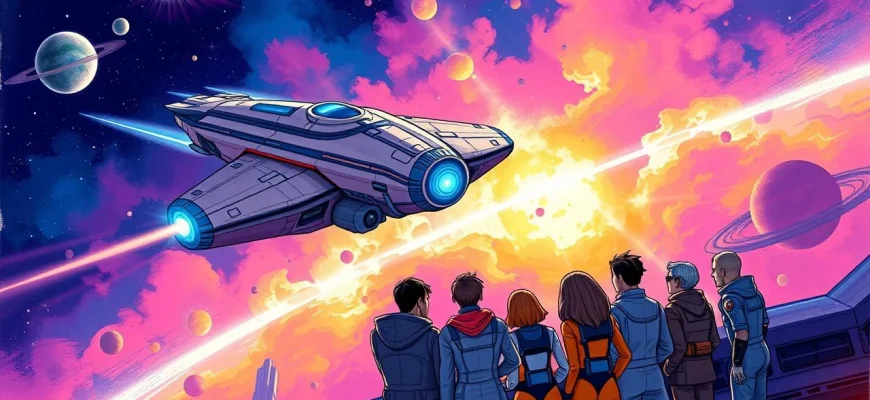If you're a fan of 'Star Trek: Strange New Worlds' (2022) and craving more shows or movies that capture its adventurous spirit, compelling characters, and sci-fi brilliance, you're in the right place. This article highlights 10 similar titles that offer the same mix of exploration, intrigue, and interstellar drama. Whether you love the episodic storytelling, the retro-futuristic aesthetic, or the deep lore of the Star Trek universe, these recommendations will keep you entertained and engaged.
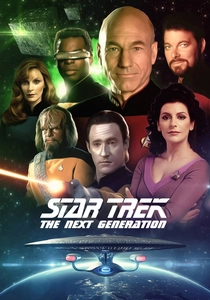
Star Trek: The Next Generation (1987)
Description: As part of the Star Trek franchise, 'The Next Generation' shares the same universe and many thematic elements with 'Strange New Worlds', including exploration, diplomacy, and ethical dilemmas. Both series focus on a starship crew navigating unknown territories and encountering diverse alien species. The optimistic view of humanity's future is a hallmark of both shows.
Fact: Patrick Stewart was initially reluctant to take the role of Captain Picard, as he was unfamiliar with the original Star Trek series. The show was the first Star Trek series to win a Hugo Award for Best Dramatic Presentation. The character of Data was originally conceived as an alien, not an android.
 Watch Now
Watch Now 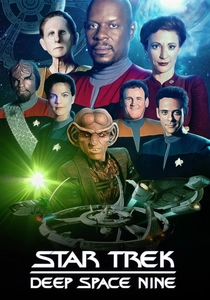
Star Trek: Deep Space Nine (1993)
Description: While 'Deep Space Nine' is more serialized and darker than 'Strange New Worlds', both shows delve into complex character development and moral ambiguity. They share the Star Trek DNA of exploring societal issues through a sci-fi lens. The presence of strong, diverse characters and intricate political storylines are common threads.
Fact: It was the first Star Trek series to feature a space station as its primary setting rather than a starship. Avery Brooks (Captain Sisko) was the first African American to lead a Star Trek series. The show introduced the concept of the Dominion War, a major conflict spanning multiple seasons.
 Watch Now
Watch Now 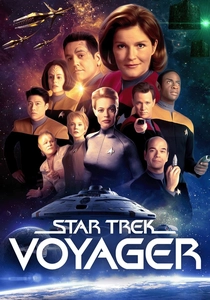
Star Trek: Voyager (1995)
Description: Like 'Strange New Worlds', 'Voyager' emphasizes exploration and the challenges of being far from home. Both shows feature a strong female character in a leadership role (Captain Janeway and Number One/Una Chin-Riley). The theme of a diverse crew working together under difficult circumstances is central to both series.
Fact: Kate Mulgrew was not the first choice for Captain Janeway; the role was initially offered to French actress Geneviève Bujold. The show was the first Star Trek series to feature a female captain as the lead character. The Borg character Seven of Nine was added in season 4 to boost ratings.
 Watch Now
Watch Now 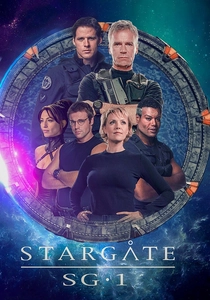
Stargate SG-1 (1997)
Description: Like 'Strange New Worlds', 'SG-1' combines episodic adventures with longer story arcs, mixing action, humor, and scientific concepts. Both shows feature teams exploring new worlds and encountering alien cultures. The balance between military protocol and scientific curiosity is a shared theme, though 'SG-1' is more Earth-centric.
Fact: The show was a continuation of the 1994 Stargate movie but with a different actor playing O'Neill. It holds the Guinness World Record for longest-running consecutive North American science fiction TV series. Richard Dean Anderson (O'Neill) incorporated his love of hockey into his character.
 Watch Now
Watch Now 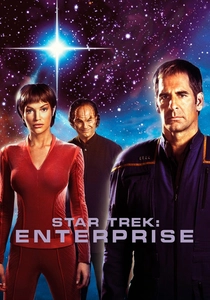
Star Trek: Enterprise (2001)
Description: As a prequel like 'Strange New Worlds', 'Enterprise' explores earlier Starfleet history. Both shows depict humanity's early steps into interstellar exploration and the formation of Starfleet principles. The more primitive technology in 'Enterprise' creates similar storytelling challenges to 'Strange New Worlds' balancing advanced concepts with historical context.
Fact: The show was originally titled simply 'Enterprise' without the Star Trek prefix for its first two seasons. Scott Bakula was cast as Captain Archer partly due to his sci-fi credentials from 'Quantum Leap'. The controversial theme song 'Where My Heart Will Take Me' was a departure from traditional Star Trek instrumental themes.
 Watch Now
Watch Now 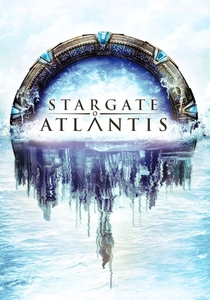
Stargate Atlantis (2004)
Description: As a spin-off of SG-1, 'Atlantis' shares with 'Strange New Worlds' the theme of explorers in an unfamiliar environment facing unknown threats. Both shows feature diverse teams using technology and ingenuity to survive. The sense of wonder and discovery is common to both, though 'Atlantis' has more of a survival aspect.
Fact: The show was originally conceived as a direct-to-DVD movie before becoming a series. The casting of Jason Momoa as Ronon Dex was his breakout role before 'Game of Thrones'. The show's cancellation after five seasons led to fan campaigns for its revival.
 Watch Now
Watch Now 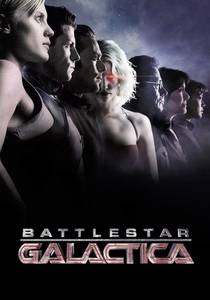
Battlestar Galactica (2004)
Description: While darker in tone than 'Strange New Worlds', BSG shares its focus on military leadership in space and complex moral dilemmas. Both shows examine what it means to be human, though BSG does this through its Cylon storyline. The serialized storytelling and political intrigue are elements that 'Strange New Worlds' incorporates in its own way.
Fact: The show was inspired by the 1978 series but took a more serious, post-9/11 approach. Edward James Olmos insisted on directing several episodes to maintain the show's vision. The phrase 'So say we all' became a cultural phenomenon among fans.
 Watch Now
Watch Now 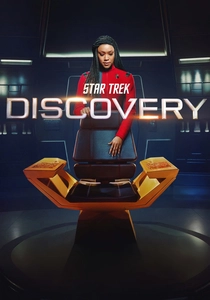
Star Trek: Discovery (2017)
Description: As another modern Star Trek series, 'Discovery' shares with 'Strange New Worlds' a contemporary approach to storytelling while maintaining Trek's core values. Both shows feature serialized storytelling with high production values. The focus on science and discovery, along with diverse representation, connects the two series.
Fact: The show was originally conceived as an anthology series with each season telling a different story. Sonequa Martin-Green's Michael Burnham is the first Star Trek lead character who isn't a captain. The spore drive technology was created specifically for the show and doesn't appear in other Trek canon.
 Watch Now
Watch Now 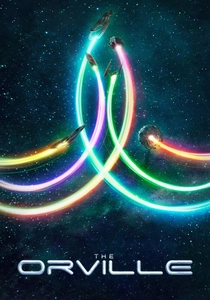
The Orville (2017)
Description: Created by Seth MacFarlane as a loving homage to Star Trek, 'The Orville' shares 'Strange New Worlds' optimistic view of space exploration and its episodic structure. Both shows balance serious sci-fi concepts with character-driven humor (though 'The Orville' is more overtly comedic). The emphasis on crew dynamics and moral dilemmas is similar.
Fact: Seth MacFarlane is a lifelong Star Trek fan and had previously guest-starred on 'Enterprise'. Several Star Trek alumni have worked on the show, including Brannon Braga and Jonathan Frakes. The show gradually shifted from comedy to more serious storytelling as it progressed.
 Watch Now
Watch Now 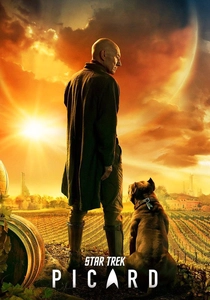
Star Trek: Picard (2020)
Description: While 'Picard' is more character-focused and darker than 'Strange New Worlds', both shows benefit from modern production values and deeper character exploration. They share the Star Trek ethos of addressing contemporary issues through science fiction. The return of classic TNG characters creates a similar nostalgic appeal to 'Strange New Worlds' use of classic Trek elements.
Fact: The show marks Patrick Stewart's return to the role of Jean-Luc Picard after 18 years. Several TNG cast members reprised their roles, including Jonathan Frakes and Marina Sirtis. The first season's plot was partially inspired by current events regarding refugee crises.
 Watch Now
Watch Now 
